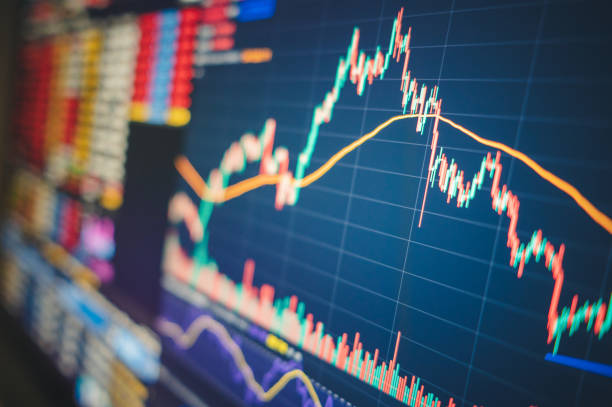
How the Stock Market is Reacting to Global Economic Changes
Introduction
The stock market is a powerful barometer of global economic health. It reacts not only to domestic factors such as corporate earnings and interest rates but also to global economic changes. In today’s interconnected world, economic shifts in one region can reverberate across the globe, influencing market sentiment and stock prices. With the world facing challenges like inflation, geopolitical tensions, and technological disruptions, understanding how the stock market reacts to these economic changes is essential for investors, policymakers, and businesses alike. In this article, we’ll explore the latest global economic changes and their impact on the stock market in 2024.
(Facebook: Like, X: Follow, Telegram: Join us)
The Global Economy in 2024: Key Factors Driving Change
The global economy in 2024 is shaped by a series of complex and interrelated factors that impact stock markets worldwide. From rising inflation rates to shifting trade relations, these economic changes can have profound effects on market behavior. Let’s examine the key drivers of global economic change and their consequences for investors.
1. Inflation and Central Bank Policies
Inflation has been a dominant theme in the global economy over the past few years. In many countries, rising prices have caused central banks to raise interest rates to curb inflation. However, higher interest rates also increase the cost of borrowing, which can slow down economic growth and affect corporate earnings. The Federal Reserve in the U.S., the European Central Bank, and other central banks have all been adjusting interest rates in response to inflation, causing fluctuations in stock market valuations.
Stock Market Impact
Higher interest rates typically make stocks less attractive to investors because the cost of borrowing rises, and alternative investments like bonds become more appealing. When central banks signal that they will continue to raise rates, stock markets can experience volatility as investors adjust their expectations for corporate profits. Conversely, if inflation begins to ease and central banks indicate they will lower rates, markets may react positively as the outlook for economic growth improves.
2. Geopolitical Tensions and Trade Wars
Geopolitical events, such as trade tensions, conflicts, and policy shifts between major economies, play a significant role in shaping global economic conditions. For instance, the ongoing trade war between the U.S. and China, the war in Ukraine, and tensions in the Middle East all have the potential to disrupt global supply chains, fuel uncertainty, and increase the cost of doing business internationally.
Stock Market Impact
Geopolitical tensions often lead to increased market volatility as investors become wary of potential disruptions in trade or economic activity. Markets may react negatively to news of escalating conflicts or trade disputes, as these events can hurt corporate profits, especially for multinational companies. On the other hand, de-escalation or positive trade deals can lead to market rallies as investor confidence returns.
3. Technological Advancements and Disruptions
The rapid pace of technological change continues to transform global economies. The rise of artificial intelligence (AI), automation, blockchain, and other disruptive technologies is altering industries across the board. While these innovations create new opportunities for growth, they can also threaten established companies that fail to adapt.
Stock Market Impact
The stock market is often quick to react to advancements in technology. Companies at the forefront of technological innovation, such as those in the AI, electric vehicle, and renewable energy sectors, often see their stock prices surge in response to positive developments. Conversely, industries that are disrupted by technology, such as traditional retail or fossil fuels, may experience declines in stock prices as investors shift their focus to growth sectors.
4. Supply Chain Disruptions and Energy Crises
The COVID-19 pandemic highlighted how vulnerable global supply chains are to disruptions. Issues such as shortages of raw materials, transportation bottlenecks, and labor shortages continue to affect industries worldwide. Furthermore, energy crises, such as rising oil prices and shortages of natural gas, can have a ripple effect throughout the economy.
Stock Market Impact
Supply chain disruptions and energy crises often lead to cost increases for businesses, which can reduce profit margins and cause stock prices to fall. Investors closely monitor these issues, as prolonged supply chain disruptions can hurt industries like manufacturing, retail, and technology. On the other hand, companies in the energy sector may benefit from higher commodity prices, leading to stock price increases.
How the Stock Market is Reacting to Economic Shifts in 2024
As 2024 unfolds, the stock market is responding to a range of global economic changes. Here’s a closer look at some of the key market reactions:
1. Volatility and Market Uncertainty
The combination of inflation, rising interest rates, and geopolitical instability has contributed to heightened volatility in stock markets. Investors are more cautious, and short-term market movements are often unpredictable. In times of uncertainty, stock markets may see sharp declines in response to negative economic news or global events, followed by rebounds when conditions improve.
2. Sector-Specific Performance
Certain sectors have been more sensitive to economic changes than others. For instance, technology stocks have generally outperformed other sectors in recent years due to the rise of digital transformation and innovation. However, interest rate hikes can put pressure on growth stocks, leading to underperformance in the tech sector.
Conversely, sectors such as energy, utilities, and consumer staples tend to be more resilient during times of economic uncertainty. As energy prices rise and consumers continue to demand essential goods, these sectors have seen positive stock price movements.
3. Global Equity Markets and Diversification
Investors are increasingly looking at global markets for diversification opportunities. While U.S. stock markets have experienced significant growth, other markets, such as those in emerging economies, have been more volatile due to local economic challenges and political instability. For example, stocks in China have been particularly affected by trade tensions and domestic regulatory changes.
Diversifying investments across regions and sectors can help mitigate the risks posed by global economic changes. For example, while the U.S. stock market may be underperforming due to rising interest rates, investors may find growth opportunities in emerging markets or in sectors such as renewable energy, which are less affected by traditional economic cycles.
4. Inflation’s Impact on Consumer Behavior
Rising inflation is affecting consumer spending patterns. With the cost of goods and services increasing, consumers are becoming more selective about their purchases, which can influence the profitability of certain companies. Retailers, for instance, may see declines in sales if consumers cut back on discretionary spending. On the other hand, companies in the healthcare, food, and essential goods sectors are often more resistant to inflationary pressures.
How Investors Can Navigate Market Reactions to Economic Changes
Given the current global economic landscape, it’s important for investors to remain informed and adopt strategies that can help mitigate risks while taking advantage of opportunities.
1. Focus on Long-Term Investment Goals
Stock markets often experience short-term volatility, but long-term trends tend to be more stable. Investors should focus on their long-term financial goals rather than reacting to daily market fluctuations. A well-diversified portfolio, with a mix of stocks, bonds, and alternative investments, can help weather economic changes over time.
2. Stay Informed About Global Events
Global events, from economic data releases to geopolitical developments, can have a significant impact on the stock market. Investors should stay updated on economic reports, central bank policies, and global news to make informed decisions about their investments.
3. Embrace Sector Rotation
The stock market reacts differently to economic changes depending on the sector. Understanding the cyclical nature of various industries can help investors make strategic decisions. For example, during periods of economic growth, cyclical sectors like consumer discretionary and technology may outperform, while defensive sectors like utilities and healthcare perform better during economic downturns.
4. Leverage Alternative Investments
For investors looking to diversify beyond traditional stocks and bonds, alternative investments such as real estate, commodities, and cryptocurrencies may provide a hedge against market volatility. These investments can serve as a buffer when stock markets experience sharp declines due to global economic changes.
FAQs About Stock Market Reactions to Global Economic Changes
How do interest rate hikes affect the stock market?
Interest rate hikes can make borrowing more expensive, slowing down consumer spending and business investments. As a result, stock prices may fall, especially in growth sectors like technology, which rely on low borrowing costs for expansion.
Are there any sectors that perform well during economic downturns?
Defensive sectors, such as utilities, healthcare, and consumer staples, tend to perform better during economic downturns because they provide essential goods and services that remain in demand even during tough times.
How does inflation affect stock prices?
Inflation can erode purchasing power and increase costs for businesses, reducing profitability. As a result, stocks may decline, especially in sectors that are more sensitive to price increases. However, certain sectors like energy may benefit from higher prices.
What is the impact of geopolitical tensions on the stock market?
Geopolitical tensions create uncertainty, which can lead to market volatility. Investors often react by selling stocks, particularly those with exposure to affected regions or industries, leading to declines in market indices.
Is it a good time to invest in the stock market amid economic changes?
While the stock market is experiencing volatility due to global economic changes, long-term investors may find opportunities in undervalued stocks or sectors poised for growth. It’s important to consider your financial goals and risk tolerance before making investment decisions.
Conclusion
The stock market is deeply influenced by global economic changes. Factors such as inflation, interest rates, geopolitical tensions, and technological advancements all play a significant role in shaping market trends. Understanding these forces can help investors make informed decisions, mitigate risks, and capitalize on opportunities. As we move through 2024, the stock market will continue to react to these global economic shifts, presenting both challenges and opportunities for those who are prepared.
Do Follow For More News: DailyForesight



